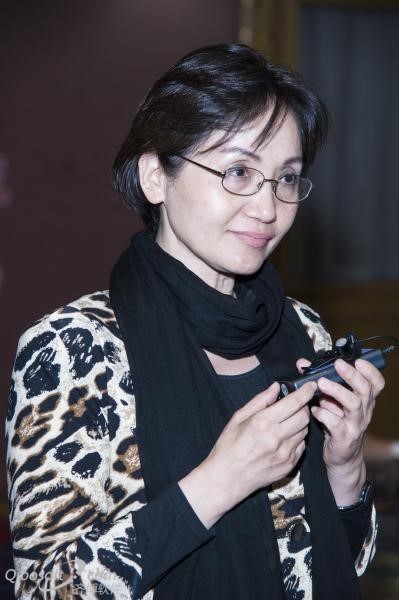Keynote Speaker

Prof. Jinlian Hu
Director of Laboratory of Wearable Materials for HealthcareJoint Professor of Materials Science and Engineering
Department of Biomedical Engineering, City University of Hong Kong, HKSAR, China
Speech Title: Smart Behavior of Spider Silks, Their Directional Water Collection and An Artificial Substitute
Abstract: Spider silks are one of the extensively studied natural protein materials due to their outstanding mechanical and smart behavior. A spider web collects water by its capture-silk for recovering the daytime-distorted shape during night through water-sensitive shape memory effect. This unique smart function and geometrical structure of spider-silk has inspired the development of artificial fibers with periodic knots for directional-water-collection with vast potential applications in water scarce regions. Existing such fibers were mainly based on nylon filaments coated with petroleum-originated synthetic polymer solutions, which proves to have limited capability in water collection. Different from using synthetic materials, an all silk-protein fiber (ASPF) with periodic knots to endow extremely high volume-to-mass water collection capability. This fiber has a main body of B. mori degummed silk coated with recombinant eMaSp2 of spider dragline silk. It is 252 times lighter than synthetic polymer coated nylon fibers that once was reported to have the highest water collection performance. The ASPF collected a volume of 6.6 µL of water and has 100 times higher water collection efficiency compared to existing best water collection artificial fibers in terms of volume-to-mass index (VTMI) at the shortest length (0.8 mm) of three phase contact line (TCL). Since silkworm silks are available abundantly, effective use of recombinant spidroins tandemly shows great potential for scalability.
Biography: Prof. Jinlian HU is a smart polymer and textile materials scientist. Graduated from Donghua University in textile materials and received a PhD from Manchester University, she recently joined the Department of Biomedical engineering, City University of Hong Kong where she established a Laboratory of Wearable Materials for Healthcare. The laboratory focuses on unearthing scientific principles and providing solutions to key problems in Healthcare of Wearable Materials in three major areas: Traditional Chinese medical therapies and their materials, energy materials and healthcare as well as spider silks and their relatives as biomaterials as well as personal protective integration. As such, we apply advanced methods including custom-made wearable electronics as basic tools to examine materials, their application methods, and particularly their interactions with human body in terms of physical, chemical, biological, philological and informational relations. From the discoveries and models of basic research, applied investigation, product developments and standardization are envisaged, which can produce societal as well economic impact in addition to scientific advances. Before CityU, professor Hu worked at Hong Kong Polytechnic University for more than 20 years. Professor Jinlian HU is a Fellow of the Royal Society of Chemistry, Hong Kong Institution of Textile and Apparel and the British Textile Institute. She is the founding chairman of the Hong Kong Health Science and Technology Park, the executive vice chairman of the Hong Kong Invention and Innovation Federation and a Council member of the Hong Kong Far Infrared Association.